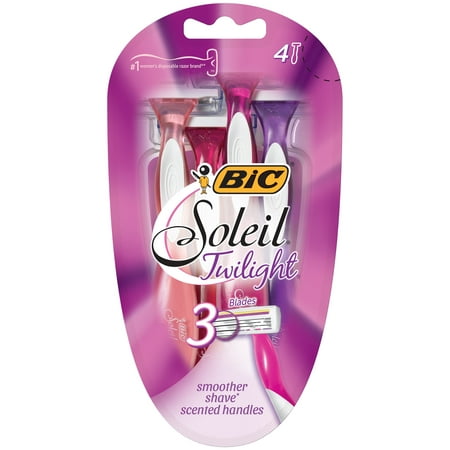(8 ct) BIC Soleil Twilight Triple Blade Women’s Razor — 2 Packs of 4 Disposable Razors
Achieve a smoother shave* with BIC Soleil Twilight Women’s Disposable Razors. These disposable razors function three blades that deliver a smoother shave.* The secure rubber grip take care of facilitates provide an awesome grip on the razor and has a lavender fragrance for a soothing experience. This razor also has a lubricating strip enriched with Lanolin and Vitamin E for more advantageous float. These disposable razors slip easily inside a gym bag or journey package for brief touch-ups. Each package deal consists of four disposable razors. (*Vs. BIC Silky Touch)









BIC Soleil Twilight Women’s Disposable Razor, 4 Count three blades supply a smoother shave* Comfortable rubber grip manage for greater control while shaving Handles are scented with lavender to relax and soothe Lubricating strip enriched with Lanolin and Vitamin E for stronger glide Disposable razors slip without problems right into a health club bag or purse for convenient contact-u.s.four disposable razors in line with package deal





Reviews
There are no reviews yet.